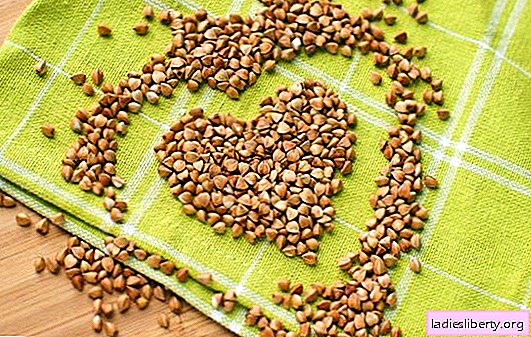
The synthetic sweetener cyclamate sodium, more than half a century ago, once and for all changed the picture of the global food industry. Thanks to him, sweet foods have become available to millions of people in need of a special diet. But the debate about its proven benefits and possible harm does not subside, and therefore, before allowing this substance to your table, you need to find out the most important thing about it.
Sodium cyclamate - safety benefit
It is known that a lot of things would not have happened in the world, had not preceded some discoveries and invention an accident or combination of circumstances. Mayonnaise and cream cheese, smallpox vaccination and penicillin, and even unbreakable glass and the discovery of America.
In 1937, in Illinois, graduate student Michael Sveda stayed in a laboratory at American University. Working on the formula of a new antipyretic drug, he took advantage of the fact that he was alone and rudely violated safety precautions by lighting it. At one point, the cigarette was laid on the table.
And when Michael continued to enjoy the bad habit, he clearly discerned an extraordinary sweetness on a cigarette.
So it was the beginning of one of the most important inventions of the 20th century, which became known under the common name sodium cyclamate. Abbott Laboratories, a pharmaceutical company, was the first to evaluate its benefits - a new substance was supposed to be added to drugs to reduce their bitter taste. But in the end, the use of sodium cyclamate turned out to be much wider.
Sodium cyclamate - the benefits and importance of the substance for dietetics and the food industry
In 1950, after a series of theoretical and practical studies, the sweetener began to be sold in pharmacies (mainly in the form of tablets), since it could perfectly replace all sugar known to people with diabetes mellitus before that time.
The fact is that sodium cyclamate does not have a glycemic index, and therefore it can not affect the level of glucose in the blood.
Sodium cyclamate is a fine crystalline white powder, it is a bit like sugar in appearance, but its sweetness is ten times greater.
There are no extraneous shades of taste and there is no smell at all - pure sweetness, which, by the way, is enhanced by mixing it with other substances, for example, sodium saccharin.
It is not surprising that soon the food industry became interested in him, on the goods of which it is customary to label it as E952.
In addition, in its pure form it can be found in pharmacies.
The melting point of sodium cyclamate is 265 degrees Celsius, which allows it to be used in the preparation of various pastries and desserts.
Also, it is very soluble in non-oily liquids, including water, dairy products, juices and everyday drinks - tea and coffee.
Due to the already mentioned amazing sweetness, for the manufacture of which this substance is acceptable, it is required an order of magnitude less than beet sugar, fructose, honey - anything from natural sweeteners.
Sodium cyclamate is inexpensive, which means that it is possible to impressively lower the cost of production. And to simplify production, because it, as has already been mentioned, is readily soluble and will not stray into sugar lumps in the same baking.
The scope of what it is added to is extremely broad:
· Cakes and pastries;
Yoghurts
Chocolate barrels
· Breakfast cereals;
Ice cream
· Chocolate and sweets;
· carbonated drinks.
The advantage that popularizes sodium cyclamate in the food industry is that in the minimum amount necessary to achieve the desired level of sweetness, it is simply impossible to acquire at least some calories in the body, which means that this sweetener is also indispensable for overweight people.
The modest benefits and theoretical harm of sodium cyclamate
In 1969, sodium cyclamate was banned for sale in the United States and only in the 70s, in the wake of extensive studies of this substance, it began to appear on sale in pharmacies in some states, remaining still unresolved in the food industry (a ban is likely soon will be removed).
But over fifty countries, including EU countries and Russia, allow the use of E952. The fact is that scientists still have not come to a consensus on the benefits and harms of sodium cyclamate.
It is known for certain that in addition to the above-mentioned properties (there are no calories and glycemic index), E952 has no more positive effect on the human body.
It simply is not absorbed by it, is not broken down and excreted in its original, pure form, through the urinary system and enhanced kidney function.
If fructose from peach jam or honey sugars can feel a surge of vitality and a tonic effect, they are useful for metabolism and mental activity - then sodium cyclamate in this sense is "dummy".
Even the classic way to improve mood, eating sweets will work with it, but not as fully and deeply as when using natural sugars, in fact, it will only be a reflex to the sweet taste, and not a full-fledged positive reaction of the body.
Proven Harm Sodium Cyclamate
The use of sodium cyclamate should be limited to its maximum permissible dosage per day - not more than 0.8 g, which can be calculated as approximately 10 mg per 1 kg of a person’s weight (with a weight of 80 kg).
The minimum that leads to an overdose is allergic reactions and a general deterioration in well-being, nausea and poor digestion.
But its use within normal limits, as recent studies have shown, does not go without consequences.
It is unequivocally proven that the harm from sodium cyclamate manifests itself in an increase in stress on the cardiovascular system and kidneys, especially with symptoms of urolithiasis.
Also, through clinical trials in rodents, it was proved that an excess of the substance leads to the appearance of malignant neoplasms in the bladder.
But whether this applies equally to man is a very vague question.
In addition, the preference for this artificial sweetener is fraught with:
· Slowing down the metabolic process;
· Decreased immunity;
· Allergic reactions, expressed in redness of the eyes and skin rashes, accompanied by burning and itching.
Sodium cyclamate is definitely harmful to pregnant women, especially in the first 2-3 weeks of expectation of the baby. The fact is that the mutual reaction of E952 and the bacteria that inhabit the healthy microflora of the gastrointestinal tract forms teratogenic metabolites, which are likely to affect the development of the fetus, provoking, among other things, serious disorders.
Summing up, we can say that the use of sodium cyclamate can be recommended in a health condition that really requires a sugar substitute with the characteristics inherent in this substance.
However, if the glucose level is normal, if there is no obesity, fast carbohydrates are not contraindicated, it is more reasonable to refuse food and drinks that have E952, no matter how attractive and appetizing they are. Or, at the very least, don't treat yourself to them often.











